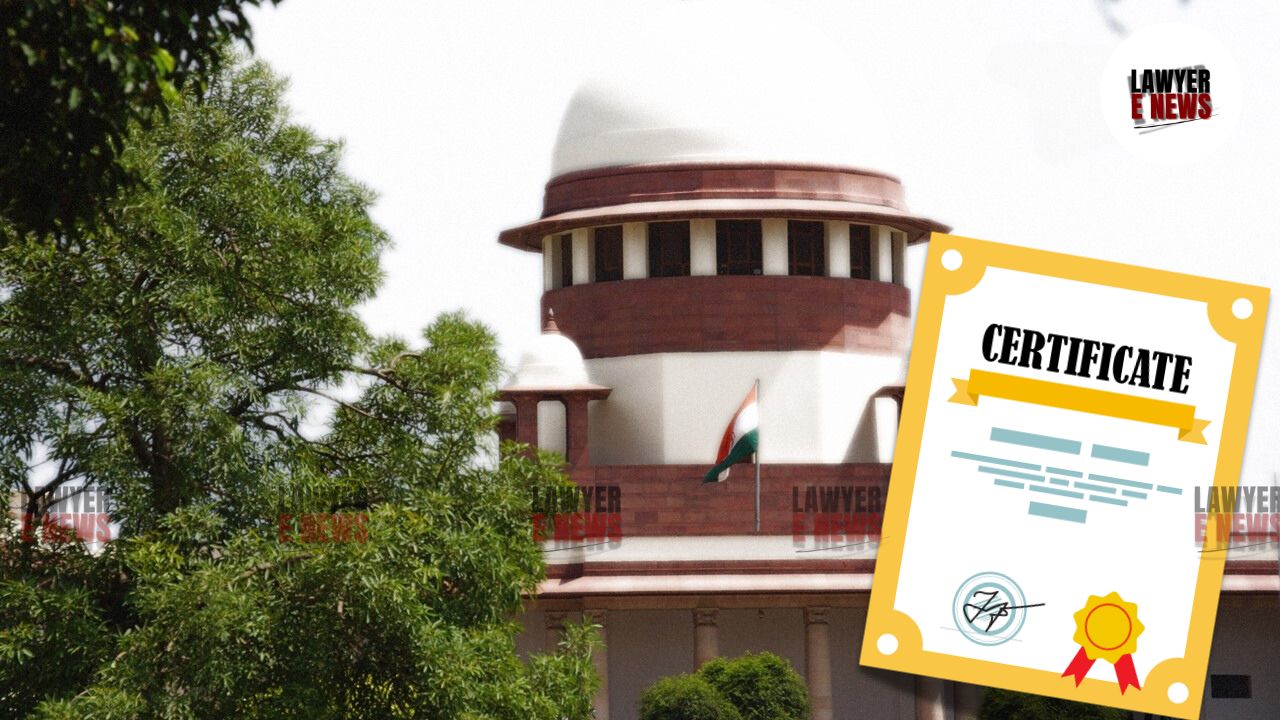-
by sayum
14 February 2026 2:22 PM



In a significant judgment, the Supreme Court has protected the employment of individuals who secured jobs based on caste certificates from communities that were later de-scheduled by the State of Karnataka. The ruling quashed the termination notices issued to these employees, emphasizing that their services must be preserved, albeit under the general category. The decision reinforces the principle that state governments cannot alter the list of Scheduled Castes and Tribes, a power vested solely in the Parliament under the Constitution.
The case involved employees from various government undertakings who had been employed based on caste certificates identifying them as members of the Scheduled Castes (SC) in Karnataka. These certificates were issued following state notifications that had included certain synonymous castes in the SC list. However, following the Supreme Court’s decision in State of Maharashtra v. Milind, which clarified that only Parliament has the authority to modify the SC/ST list, these castes were de-scheduled by the state, leading to the cancellation of the appellants’ caste certificates and subsequent initiation of termination proceedings by their employers.
The Supreme Court observed that while the caste certificates were issued under state authority, their validity was nullified after the de-scheduling of the castes. The court highlighted that the original inclusion of these castes in the SC list by the state was beyond its jurisdiction, as such powers are exclusively vested in Parliament under Articles 341 and 342 of the Constitution.
Despite the invalidation of the caste certificates, the Court emphasized the protection offered by state circulars issued in 2002 and 2003, which allowed affected employees to retain their jobs under the general category. The Court noted that these circulars were further supported by communications from the Ministry of Finance, which had ratified the state’s decision to protect such employees from termination.
The Court heavily relied on its previous judgment in Milind, which established that no state government or court has the authority to amend or alter the SC/ST list. The judgment clarified that any such alterations must be made through legislation by Parliament. However, recognizing that the caste certificates were not obtained through fraud or misrepresentation, the Court found it equitable to allow the employees to continue in service under the general category, thereby protecting their employment.
Justice Hima Kohli, delivering the judgment, remarked, “The circulars dated 11th March 2002 and 29th March 2003 issued by the Government of Karnataka, along with the ratification by the Ministry of Finance, provide a protective umbrella that ensures the continuation of service for the appellants, albeit under the general category. The action proposed by the respondent banks and undertakings to terminate these services cannot be sustained.”
The Supreme Court’s ruling sends a clear message regarding the limits of state authority in matters of caste classification and the protections afforded to employees in such scenarios. By allowing the affected employees to continue in their roles under the general category, the judgment balances the principles of equity with constitutional mandates. This decision is likely to have significant implications for similar cases, reinforcing the need for legislative clarity in matters of caste-based reservations.
Date of Decision: August 28, 2024
K. Nirmala & Ors. Vs. Canara Bank & Anr.
